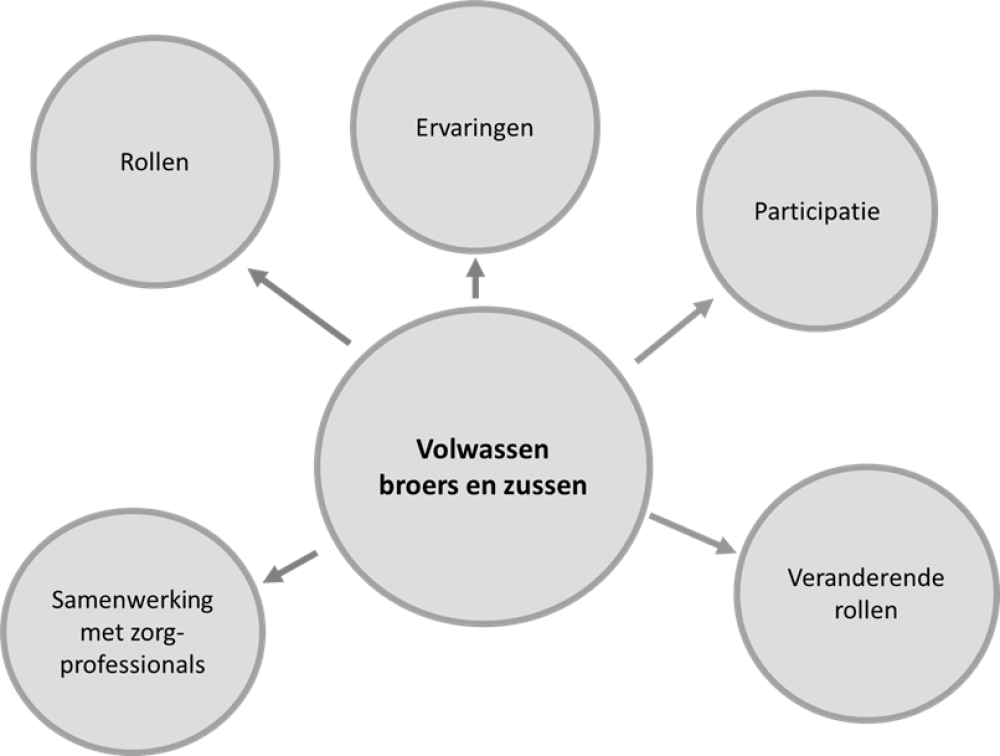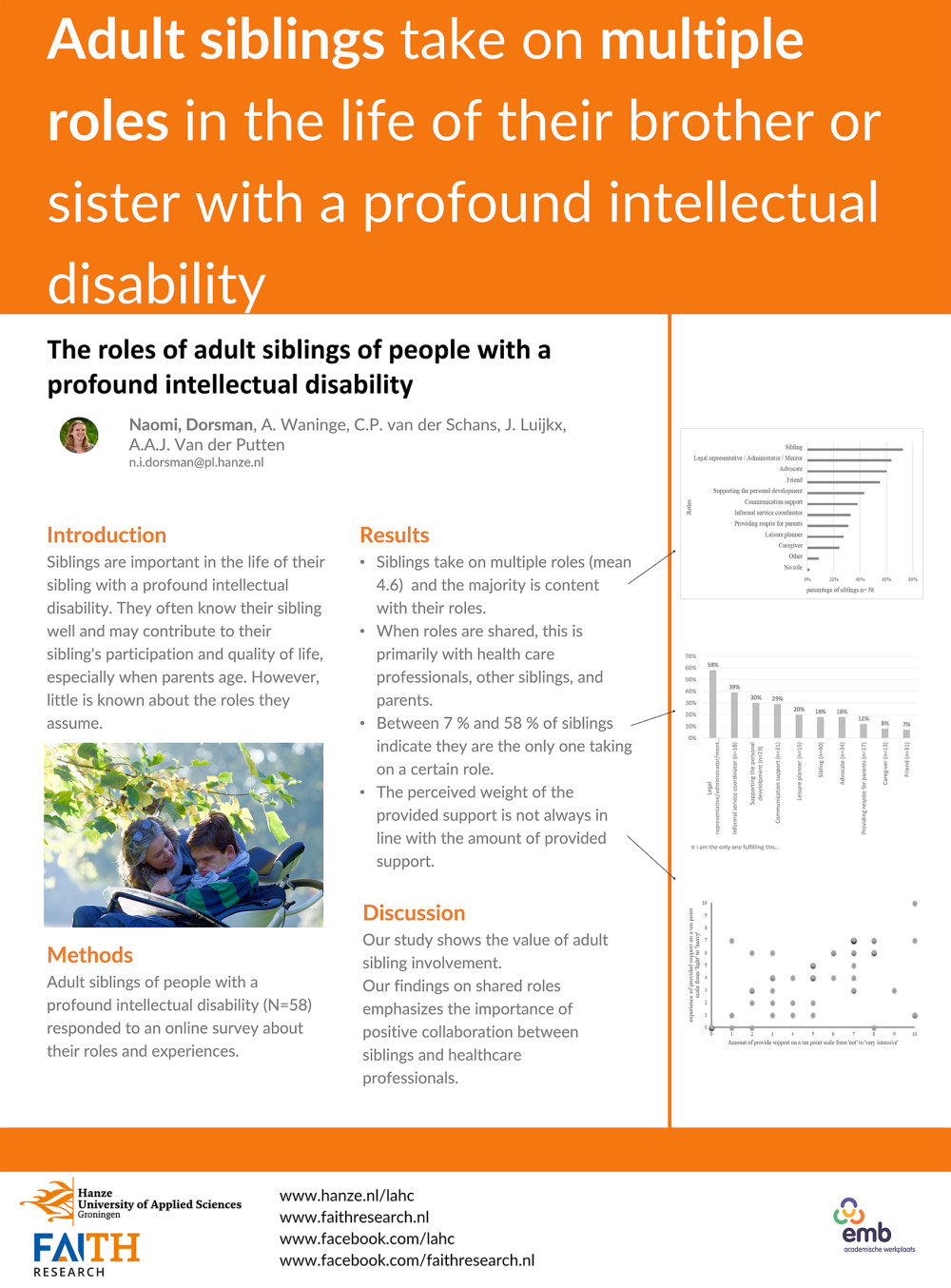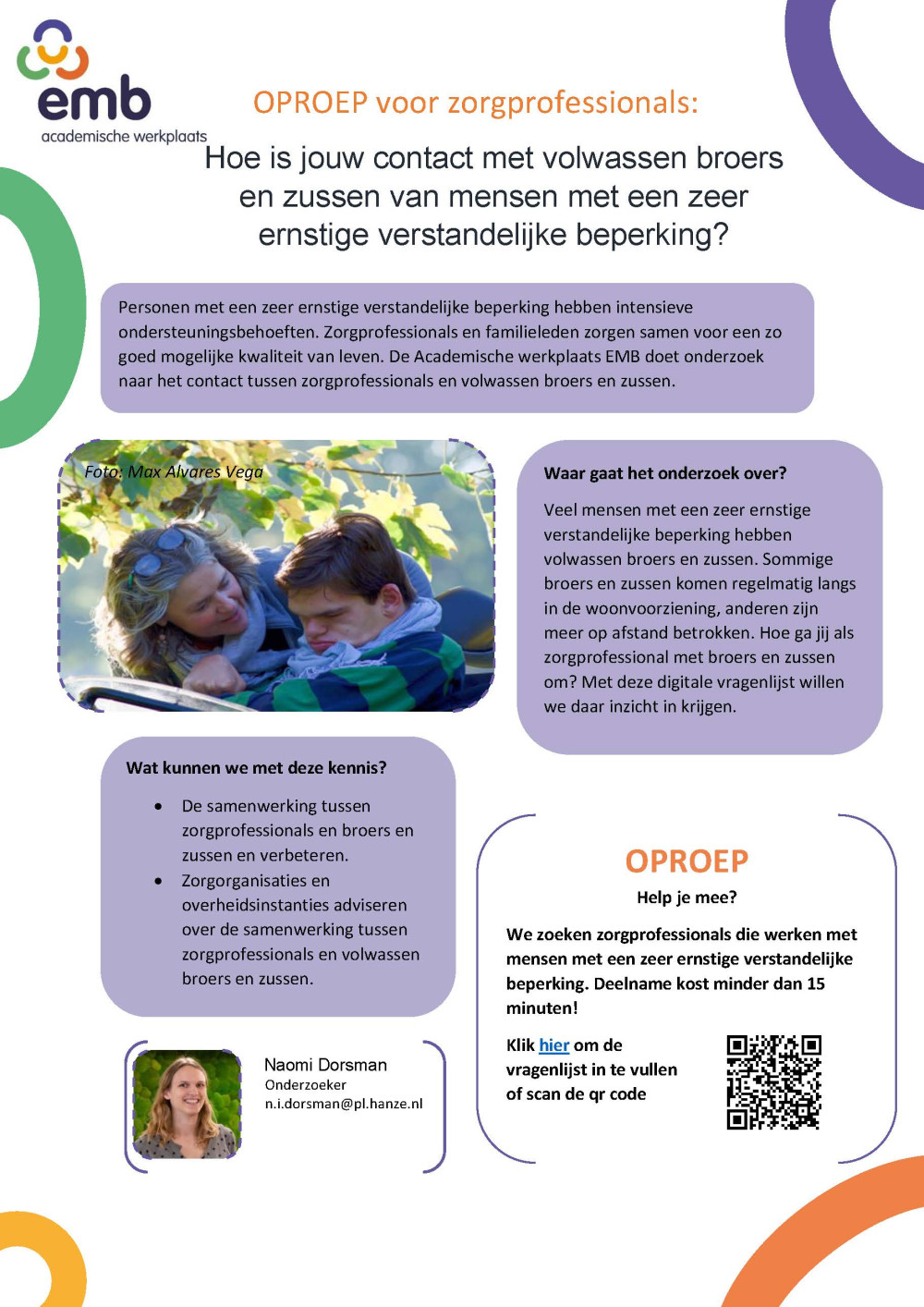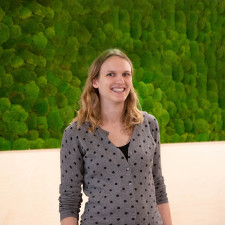Spotlight on older siblings!
On this page:

Introduction
This research project ‘Spotlight on older siblings!’ (Volwassen broers en zussen in beeld) examines the role of the second generation of relatives (siblings) in the lives of people with a profound intellectual disability (PID).
Part 1: the role of siblings
The purpose of the first part of the project is to gain insight into the roles that adult siblings play in the lives of people with a profound intellectual disability (PID):
• What roles do adult siblings play in the lives of people with PID?
• How do siblings experience this role?
• How do roles shift from the parents of people with PID to their siblings as the parents age?
• And how does the involvement of siblings influence the social contacts and participation of people with PID?

Part 2: collaboration with healthcare professionals
The second part of the project focuses on collaboration between siblings and healthcare professionals. Would you like to participate in this research project? To sign up, click on this link (Dutch).

Oktober 2023: oproep voor zorgprofessionals
Mensen met een zeer ernstige verstandelijke beperking hebben intensieve ondersteuningsbehoeften. Zorgprofessionals en familieleden zorgen samen voor een zo goed mogelijke kwaliteit van leven. De Academische werkplaats EMB doet onderzoek naar het contact tussen zorgprofessionals en volwassen broers en zussen. Onderzoeker Naomi Dorsman is op zoek naar zorgprofessionals die mee willen werken aan dit onderzoek.
Flyer oproep zorgprofessionals onderzoek Volwassen broers en zussen in beeld AW EMB (pdf)

About the researcher
What is your role within the Academic Collaborative Centre related to people with PIMD?
I am a PhD student at Hanze University of Applied Sciences. My doctoral research focuses on the role of second-generation family members (siblings) in the lives of people with a profound intellectual disability (PID).
What do you hope to achieve?
My hope is that this research will teach us more about the experiences and wishes of adult siblings and the roles that they play in the life of their brother or sister with PID. We can then use that knowledge to investigate how siblings can be involved in ways in which they feel comfortable, thereby optimising the support provided to people with PID by their families.
